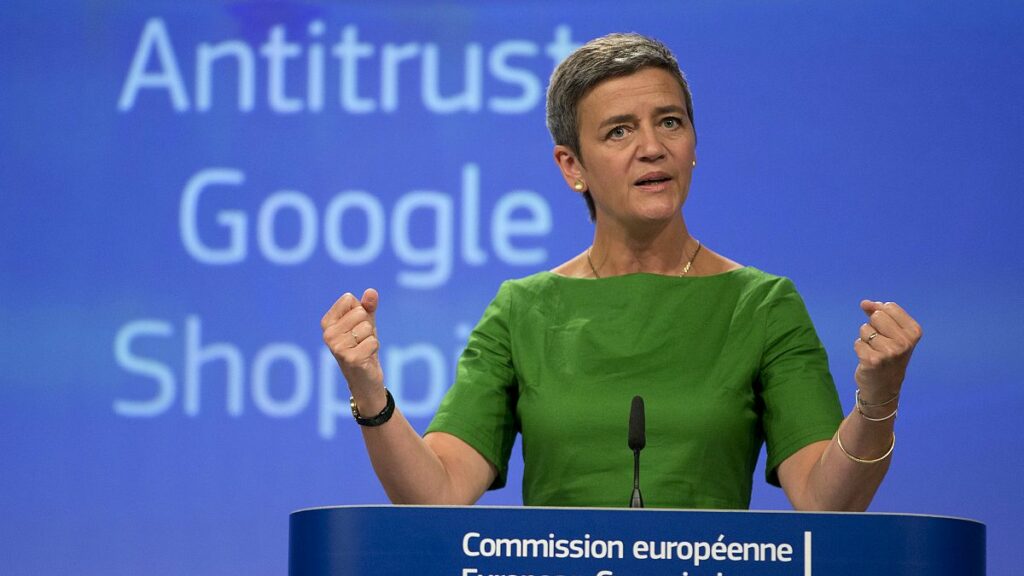In 2017, the Commission accused Google of favouring the results of its own price-comparison service, Google Shopping, in search results, disadvantaging competitors.
The company and its parent company Alphabet were ordered to pay a fine that was, at the time, the greatest ever imposed by the Commission under its tough antitrust powers.
Google failed in a bid to challenge the decision before the EU’s General Court, before appealing to the senior EU Court of Justice.
“In the light of the characteristics of the market and the specific circumstances of the case, Google’s conduct was discriminatory and did not fall within the scope of competition on the merits,” judges said today, dismissing the appeal by Google and its parent company Alphabet.
Google presented the search results of its product comparator first, highlighting them with attractive visual and textual information, while results from rivals came lower down as a link, the Commission had said.
The ruling confirms an advisory opinion from Juliane Kokott, one of the Advocates-General of the Court, who in January said the fine should be upheld.
Google “was leveraging its dominant position on the market for general search services to favour its own comparison shopping service”, Kokott’s non-binding opinion said.
A spokesperson for Google told Euronews: “We are disappointed with the decision of the Court. This judgment relates to a very specific set of facts. We made changes back in 2017 to comply with the European Commission’s decision. Our approach has worked successfully for more than seven years, generating billions of clicks for more than 800 comparison shopping services.”
Digital Markets Act
Vestager said at a press conference today that the case is “a landmark in the history of regulatory action.”
“It is one of the first cases against a major digital company, and this marked a shift in how companies were regulated and perceived. This paved the way for the Digital Markets Act,” she said.
The DMA became applicable to big tech companies, Alphabet, Amazon, Apple, ByteDance, Meta, Microsoft, which are considered gatekeepers, in March of this year.
“With all the necessary procedures in place, we will still press on for cases. There is no reason to think we are all on DMA, we will do separate cases too. I hope that the reading of todays judgement is: maybe it’s better to be a compliant company,” she added.
The loss for Google is a win for Vestager, who ends her reign as EU competition commission when a new college takes office later this year.
In a reaction, Agustín Reyna, Director General of consumer group BEUC, said he welcomes the decision, calling it “crucially important for Europe’s consumers.”
“The Court has confirmed that Google cannot unfairly deny European consumers access to full and unbiased online information about where to get the best deals,” Reyna said.
Tech lobby organisation CCIA Europe said in a statement that “It is essential that companies in Europe know when competition law will force them to share their technology with their rivals. These companies need legal certainty in advance, they shouldn’t be punished after-the-fact for competing successfully.”
Source link : https://www.euronews.com/my-europe/2024/09/10/google-loses-24-bn-eu-antitrust-case-for-favouring-its-own-shopping-service
Author :
Publish date : 2024-09-10 07:00:00
Copyright for syndicated content belongs to the linked Source.
